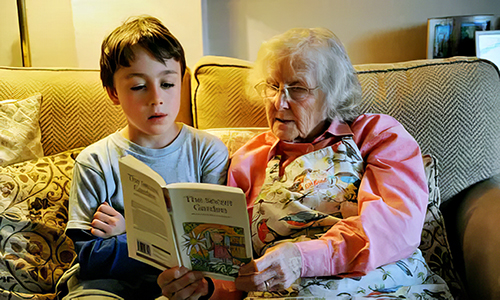
Learning a language is often perceived to be challenging, and vocabulary is a crucial element of language learning.
Also important is pronunciation. How the word looks on the page and how it sounds may almost be opposite.
For example vowel sounds in many languages can be either long or short, and the length of the vowel might well determine the meaning of the word.
For example in New Zealand Māori the word for armpit is kēkē. The word for cake is keke.
Now you do not want to go spraying deodorant on your cake!
Neither do you want to spread chocolate icing on your armpit!
Each word contains the same letters, and in the same sequence.
However, one word has a macron over each of the vowels, which determines that the vowel sound is longer and so changes the entire word.
The best way, I have found, to learn a language is from kids. They don’t mind you making mistakes – after rolling on the ground in happy laughter, they stand up and correct you.
I was subject to this on many occasions while trying to get my tongue around the Fijian language.
Each morning, after breakfast, I would sit on the verandah which surrounded the priests house where I lived. The local children would pass by on their way to the Convent school.
They would call out, “Yadra saka” and give a cheerful wave.
Of course, wanting to be fully integrated into the local language and culture, I would call back with an equally cheerful wave, “Yadra saka” and continue with my coffee and book.
One morning a young boy stopped and walked over to where I was sitting, and, without an ounce of malice declared, “you saka, me no saka”. Then he turned and ran to catch his classmates.
“Saka” in Fijian has the literal meaning of ‘sir’, and has for many, many years, been the word used to address the priest! “you saka, me no saka” was, in fact, very true.
The Third Sunday of Ordinary Time is celebrated as the ‘Sunday of the Word of God’ – a day, instituted by Pope Francis on the Feast of Saint Jerome in 2019, devoted to the celebration and study of Sacred Scripture.
Maybe, the best way to learn about the Word(s) of God is to sit on the verandah with a hot cup of tea, or whatever your favourite brew is and allow the One who knows the language first hand to teach you.
[For those who have the slightest interest the word “yadra” is like our saying ‘good morning’. However, it is pronounced with a missing ‘n’, so “yandra”.
Similar to your arrival at Nadi, pronounced with an ‘n’ – hence Nandi]
